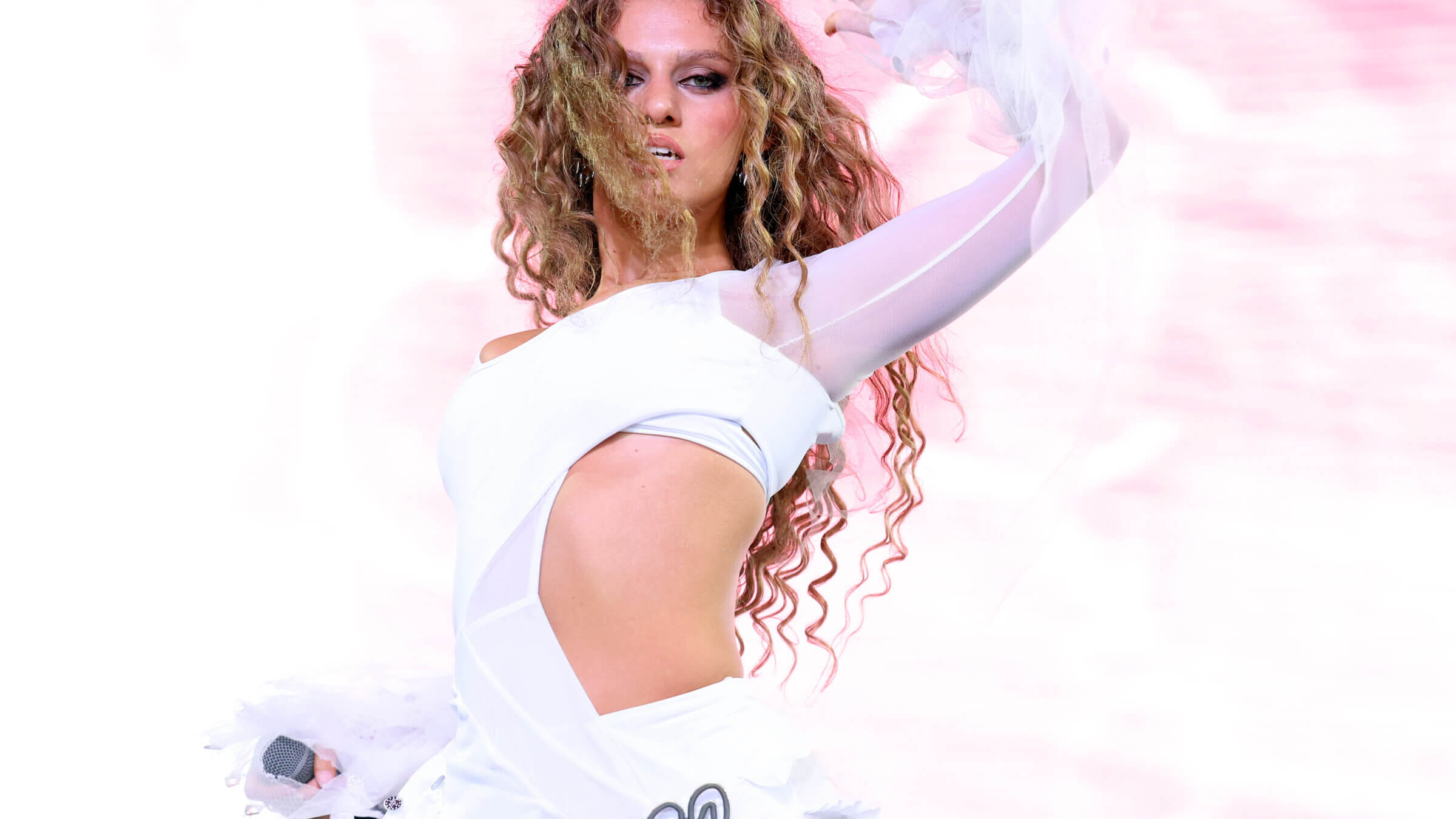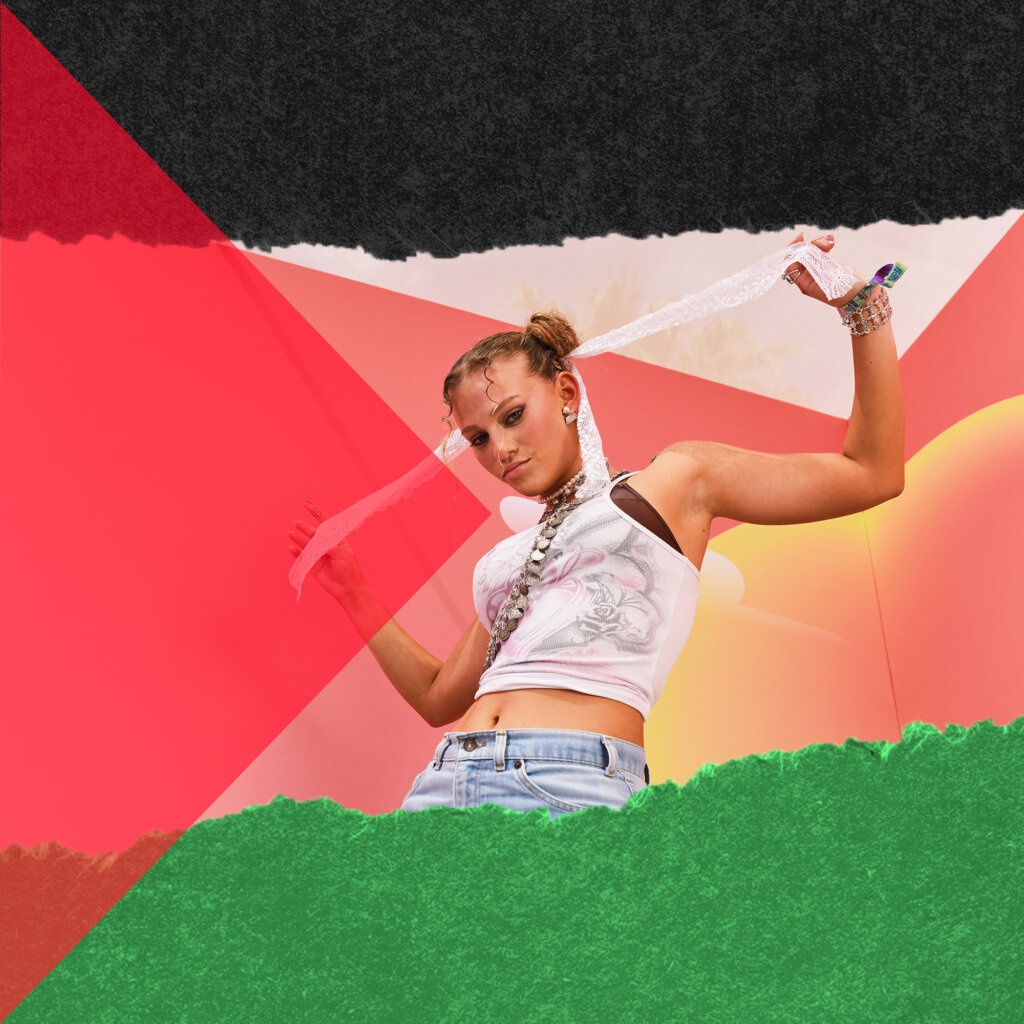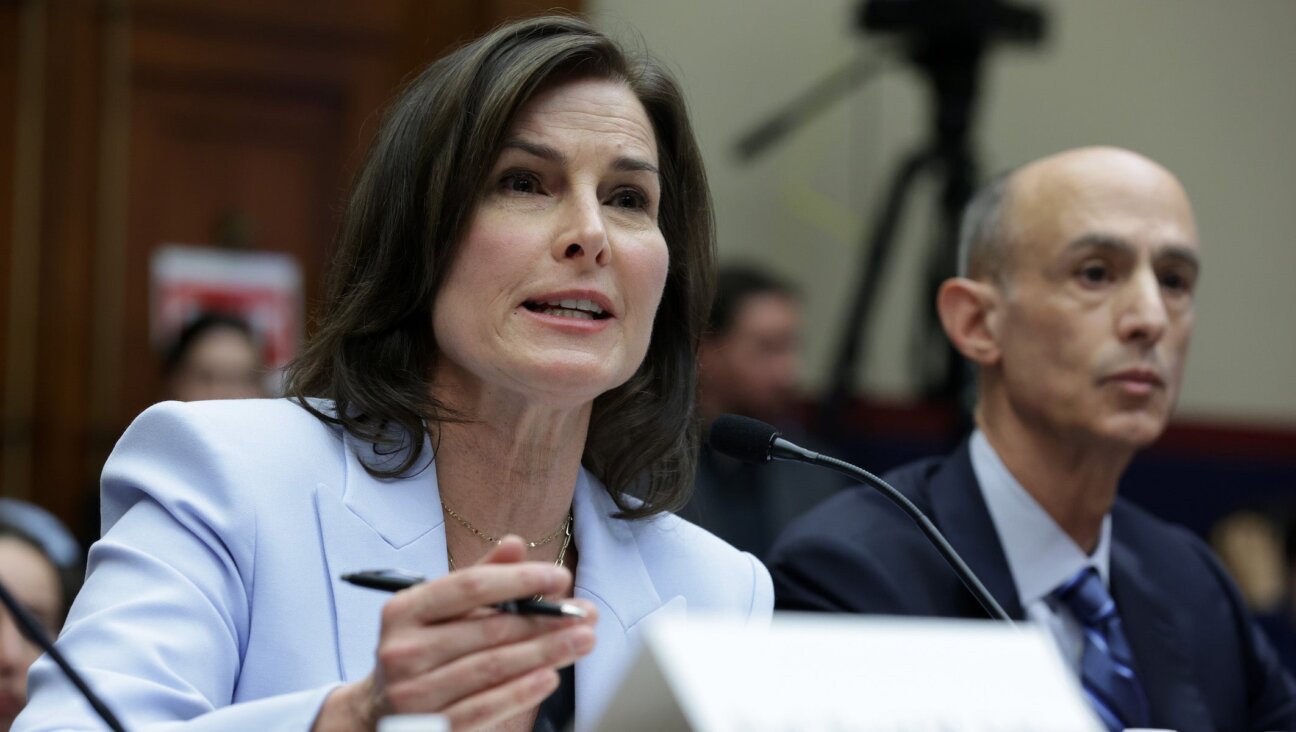Kaffiyehs are cool again: Meet the Coachella star, Elyanna, shaking our views of Palestinian culture
What happens when a pop star from Nazareth becomes the face of her people?

Elyanna performs at the Gobi Tent during the 2023 Coachella Valley Music and Arts Festival on April 14, 2023 in Indio, California. Photo by Monica Schipper/Getty Images
The Coachella Music Festival is known for over-the-top sets, star-studded lineups and otherworldly festival attire. This year, it also delivered a lesson in modern Middle East politics.
Palestinian-Chilean singer Elyanna gave the first Arabic language performance in the festival’s history on Saturday. The young crowd, amped up by Elyanna’s commanding voice and sensuous dance moves, erupted into applause as she waved a black-and-white checkered kaffiyeh, a scarf that symbolizes Palestinian resistance, at the end of her set.
https://www.youtube.com/watch?v=v1wi__TAzyQ
“Our Palestinian queen!” the Instagram fan account @elyannaians gushed beneath a repost of the climactic moment.
“A monumental moment for Arab artists,” the Saudi-backed Arab News exclaimed.
The singer’s April 15 performance was, if not a monumental moment for the Israel-Palestine debate here in America, certainly a significant marker of its evolution.
In a debate that too often casts Palestinians as either beleaguered victims or bloodthirsty terrorists, Elyanna presented a joyful and powerful representation of Palestinian life. The young singer, and other influencers like her, are fundamentally changing the way that young Americans view the conflict.
TikTok is the new Google
For Americans under 25, influencers, memes and six-second videos dominate the media landscape. Sure, it’s possible to still win hearts and minds with 1,000-word op-eds. But they will be old hearts and minds.
Underestimate the influencers at your own peril. The Elyannas of the world — like Gigi and Bella Hadid, the massively popular models — can and do shift and shape perceptions of complex political issues, including views of the Israeli-Palestinian conflict. There may be many factors why Americans under 30 view Palestinians more warmly than Israelis, according to a 2022 Pew Research Center survey, but social media and its stars likely have something to do with it.
The State of Israel has 251,000 TikTok followers. Bella Hadid? 8 million.
View this post on Instagram
If you’re a boomer, it’s likely that your first introduction to the kaffiyeh was when the late Palestinian leader Yassir Arafat wore one on his head (and a pistol on his hip) as he addressed the United Nations. He couldn’t even crack a 35% approval rating among his own people before he died.
But today in America, thanks in no small part to popular online influencers, the kaffiyeh is more chic than revolutionary. Supermodels like Bella Hadid don them at protests, and have even fashioned them into Chanel-esque jackets to mark “World Keffiyeh Day.”
During her Coachella performance, Elyanna’s kaffiyeh came across as an invitation to celebrate with the cool kids. It was, in the moment, inspiring.
“We are introducing a new culture and we are making sure that everybody hears us, everywhere from all around the world,” Elyanna told Arab News just before she took the stage.
Palestinian star power

Born Elian Marjieh in Nazareth in Israel’s north to a Palestinian mother and a Chilean father, Elyanna, who is 21, emigrated with her family to the United States when she was 15, settling first in San Diego, then Los Angeles.
By the age of 16, she was signed by Wassim Slaiby, the Lebanese-Canadian founder of Universal Arab Music. She soon pumped out two viral hits, “Ana Lahale” and “Ghareeb Alay,” the song that brought down the house at Coachella.
“She’s not a scrappy independent artist, or a protest poet, or anything else you might think when you think ‘Palestinian music,’” wrote Amos Barshad in the Los Angeles Times.
“She’s something much rarer: a young Palestinian artist with the clear backing of the American music industry.”
Catching up to Gal Gadot
Since Israel’s founding 75 years ago, the country has had its own parade of popular culture ambassadors, willing or not. Think of Chaim Topol, the star of Fiddler on the Roof, or Natalie Portman, the Oscar-winning actress who has sensitively portrayed an Israeli woman on screen and also publicly criticized the country’s government.
Today, though Gal Gadot has said she doesn’t see herself as an “ambassador” for Israel or Jews, what she says about her native country instantly connects to her 100 million Instagram followers. Her moving post about meeting with a concentration camp survivor on April 18, Holocaust Memorial Day, had close to 400,000 likes in a day.
As more Americans look to these massively popular figures to understand the clash of Israeli and Palestinian civilization, age-old assumptions will be challenged in ways that the old, staid radicals on both sides could never imagine.
Dancing on stage in a bare midriff in front of a team of backup singers and dancers, Elyanna projects confidence and independence, which some of the Arab-language commentators clearly find objectionable.
“This is not Islamic, this is Western culture,” wrote one, indicating that the young Arabic singer will likely be a challenge to more than one narrative.
Elyanna’s lyrics, for their part, are suffused with messages of love, longing and hope.
“Sweetie, you are with me, the joy and the calamity,” Elyanna sings in “Ghareeb Ali.” “The world is sweet and bitter.”
Is it too much of a pipe dream to hope that this new generation of influencers, Palestinian and Israeli, use their powers to push for just, nonviolent solutions to the conflict?
























